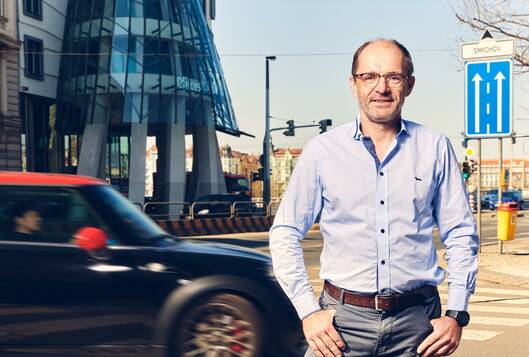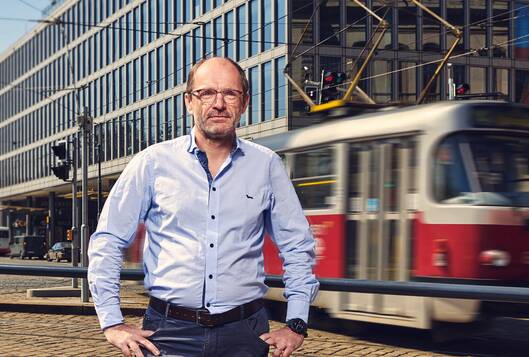It is the largest and most comprehensive project of its kind to date, bringing together computer scientists from CTU, media experts, linguists from Charles University and Palacký University, and lawyers from Masaryk University. On the media side, the Czech News Agency and Demagog.cz will participate in the project. Together, they will test in practice how newly developed AI tools are successful in detecting disinformation, the danger of which has increased significantly after the advent of generative artificial intelligence.
AI as both a threat and an opportunity for the media space
"In terms of spreading disinformation, AI is proving to be a threat to democratic societies and their media space. It can create and distribute fake texts, images and videos on a much larger scale and in such a realistic form that they are sometimes indistinguishable from authentic news," says Prof. Jiří Matas from the Faculty of Electrical Engineering at CTU, who is the guarantor of the project. The Visual Recognition Group led by him at the Department of Cybernetics will develop AI tools for detecting deepfake videos as part of the CEDMO 2.0 NPO. Deepfake video detection and fact-checking is a real problem that many top teams in developed countries are working on solving.
"We are already working in a similar area of research, and we have been approached by institutions that suspect manipulation of videos. We are working on methods that will be at the core of programs capable of detecting even short sections where reality is edited. The methods are aimed at detecting various inconsistencies in the image, such as the fact that people blink differently in deepfake videos," says Prof. Jiří Matas. The Czech research within the CEDMO 2.0 NPO project is not unique in terms of topics, but its uniqueness lies in the breadth and complexity of activities and individual modules. In addition to Czech partners and institutions, foreign partners and institutions, such as investigative journalists at EU level, will be involved in the activities through an EU project of the same name. The aim is to support quality investigative journalism and provide it with the necessary tools to support the media in their adaptation to the use of AI.
CEDMO's activities respond directly to the European Commission's Communication "Europe’s Media in the Digital Decade: An Action Plan to Support Recovery and Transformation". The main objective of the activity is to promote the creation of quality content and the emergence of new business models leading to profitability and thus independence of the media. Thus, the activity includes a study of the possible use of linguistic and visual tools to support the economic transformation of the media in cooperation with public service media in particular. It also includes a study of journalistic genres and tools after the advent of automated AI journalism. A separate activity, closely related to this module, is the regulation of the use of AI in the media.
Another activity of the project is increasing digital literacy using AI tools. CEDMO 2.0 NPO will focus on helping disadvantaged groups such as the hearing and visually impaired, the elderly and others. This is mainly for the purpose of researching, designing and developing tools that will lead to increasing their media literacy in order to enhance their ability to counter misinformation. At the same time, the aim is to raise the level of AI models and tools themselves, in order to better engage with the media and ensure their positive impact on the media ecosystem and society and disadvantaged groups.
The implementation of the CEDMO 2.0 NPO project will run from September 2024 to the end of April 2026. The Central European Digital Media Observatory (CEDMO) is an independent, non-partisan, multidisciplinary centre and its aim is to identify, investigate and highlight the main sources and causes of undesirable information disorders in Central Europe (mainly in the Czech Republic, Slovakia and Poland). The international consortium has been created to propose a set of short-term and long-term measures and recommendations that will enable civil society, public institutions and the private sector to respond to the declining trust in key institutions, while helping society resist the growing impact of false and distorted information.



